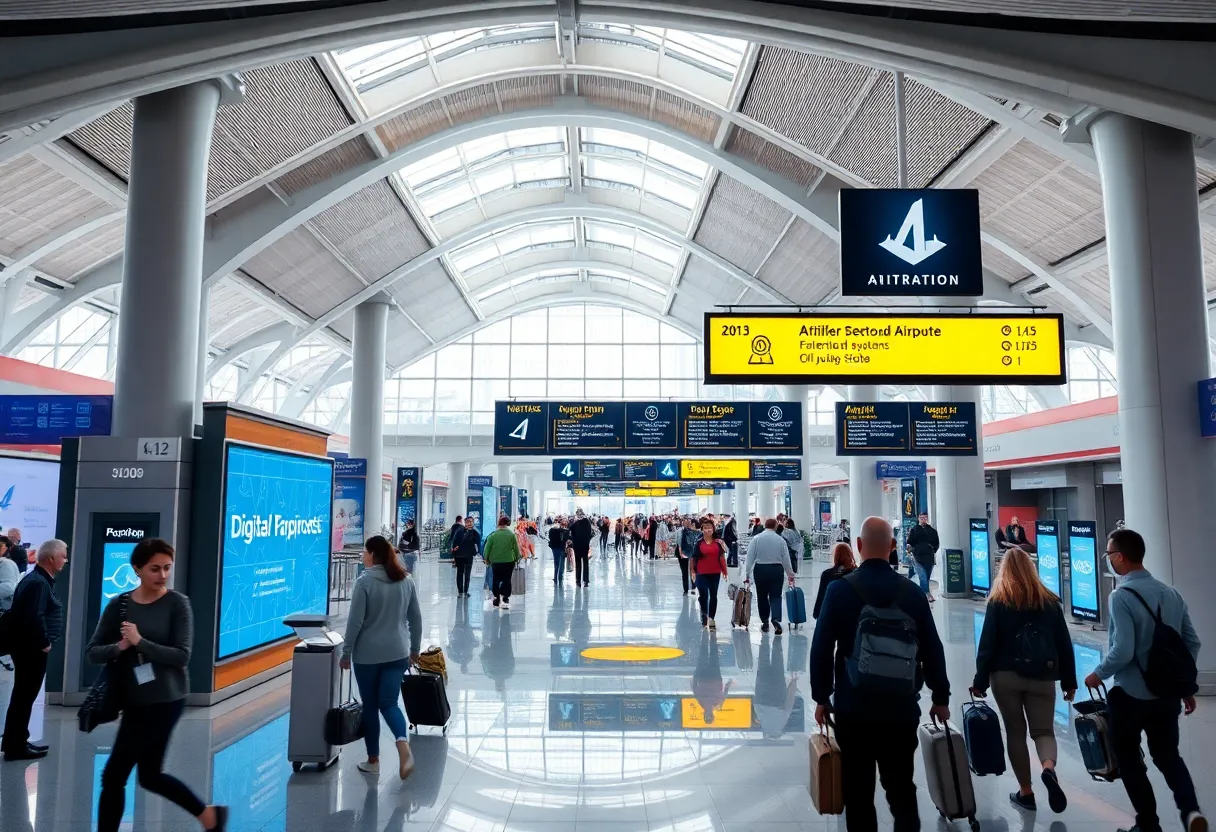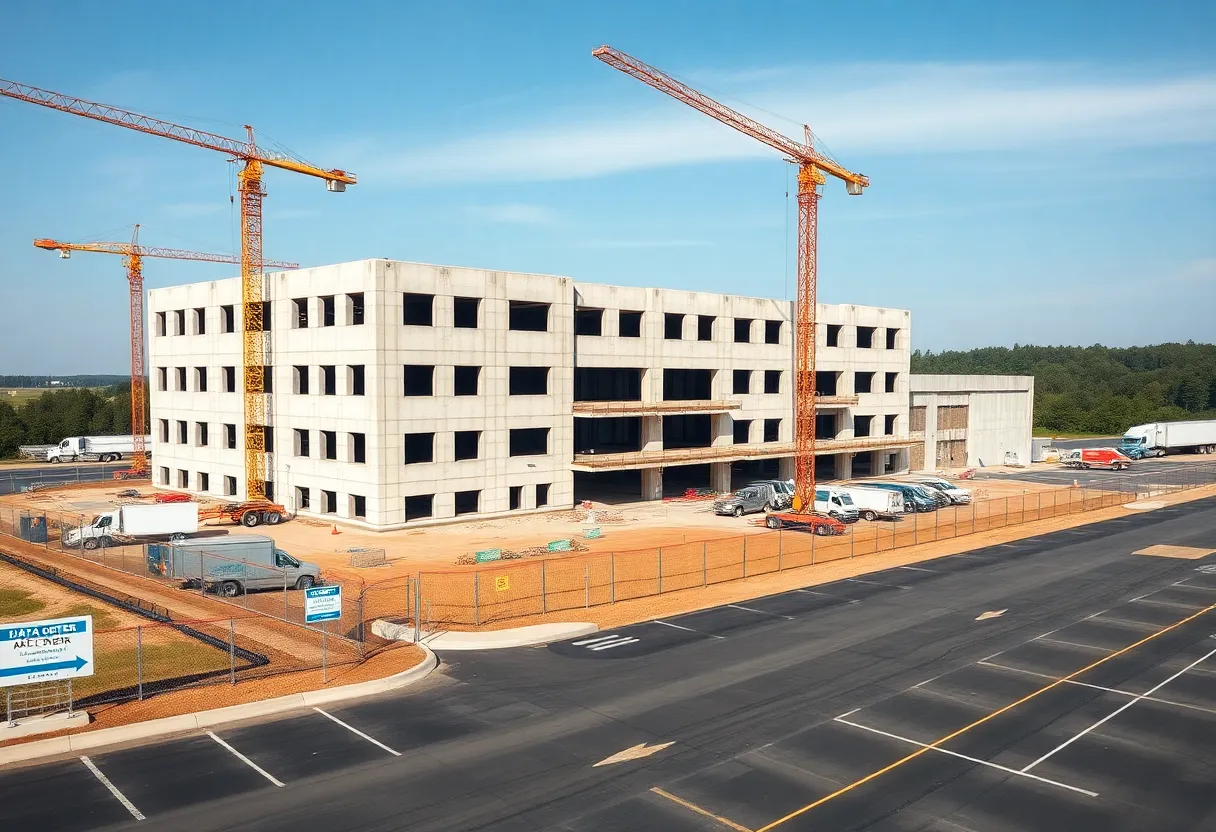News Summary
India’s aviation sector is undergoing a digital transformation as major airports deploy advanced technologies to enhance operations. From artificial intelligence and biometrics to centralized operations control centers, airports are focused on streamlining processes, improving safety, and elevating passenger experiences. Initiatives like the Digi Yatra aim to create a contactless, paperless travel experience while addressing ongoing challenges from heightened safety protocols. Key projects include the establishment of intelligent terminals and comprehensive cybersecurity strategies. The government plans to develop more airports and improve connectivity in the coming years, ensuring a robust future for the aviation industry.
India’s Aviation Sector Embraces Digital Transformation Amid Ongoing Flight Disruptions
India’s aviation industry is currently navigating a significant technological transformation, as airports across the country adopt advanced digital solutions. Despite facing ongoing challenges, including flight disruptions tied to stringent safety protocols, airports are evolving with a focus on enhancing passenger experiences and operational efficiency.
Enhanced Operations Through Technology
Major airports such as Delhi, Mumbai, Bengaluru, and Hyderabad are leading the way by implementing smart terminals powered by integrated digital technologies. These advancements aim to streamline operations while boosting safety and improving the overall passenger experience.
Among the key innovations are artificial intelligence (AI), biometrics, digital twins, and predictive analytics. The implementation of these technologies is reshaping essential airport functions, from gate allocations and baggage management to security processes.
Digi Yatra Initiative
The Indian government has introduced the Digi Yatra initiative, which leverages biometric-based entry and boarding systems to enable a contactless and paperless travel experience. The initiative aims to cater to 90% of the country’s domestic flying population and is targeting international pilot projects by 2025.
Transforming Baggage Management
Baggage management systems are being reinvigorated by AI-driven reconciliation technologies and automated sorting systems. Airports like Hyderabad and Bengaluru have adopted biometric-enabled self-bag drop kiosks, improving efficiency and passenger service during transit.
At Trichy and Mumbai airports, AI-powered CT scanners and inline baggage handling systems further advance security measures and provide real-time tracking, ensuring that every piece of luggage is monitored effectively.
Centralized Operations for Improved Coordination
Centralized Airport Operations Control Centres (AOCCs) are integral to enhancing coordination among airport authorities, airlines, and ground staff. This system supports the real-time management of operations, helping in optimizing gate allocation and aircraft turnaround with the help of predictive analytics driven by AI and machine learning. Delhi’s Unified Total Airside Management (UTAM) system is a prime example, utilizing IoT and AI to monitor vehicles, predict delays, and refine operational workflows.
Safety and Efficiency Upgrades
Recent upgrades to the Instrument Landing System (ILS) at Chennai, Bengaluru, and Hyderabad airports have significantly improved both safety and operational efficiency, particularly in low-visibility conditions. Furthermore, modern designs at airports, including Bengaluru’s new Terminal 2 and the upcoming Noida International Airport, employ Building Information Modelling (BIM) for advanced construction management.
Focus on Cybersecurity
With the rise of digital technologies, comprehensive cybersecurity strategies are being developed to safeguard airport networks, passenger data, and critical infrastructure from growing cyber threats. As more airports implement digital solutions, the importance of robust security protocols becomes increasingly apparent.
Aviation Growth Plans
Looking ahead, the Indian government plans to develop an additional 50 airports and connect 120 new destinations within the next five years, further supporting the growth of aviation in the country.
Flight Disruptions and Safety Concerns
Despite these technological advancements, the industry is grappling with ongoing flight disruptions. Increased safety checks following the tragic crash of Air India flight AI171—resulting in the loss of 241 lives—have led to heightened scrutiny. Recent incidents have included cancelled flights and emergency landings attributed to bomb threats and technical issues, as seen with AI159 from Ahmedabad to London and AI180 from San Francisco to Mumbai, along with multiple cancellations reported on June 17, 2025.
Investigations into the AI171 crash are ongoing, with a focus on the advanced systems of the Boeing 787 and potential software flaws contributing to the incident.
Deeper Dive: News & Info About This Topic
Additional Resources
- Financial Express: Flight Disruptions in India
- Wikipedia: Aviation in India
- CNBC TV18: Indigo Flight Grounds
- Google Search: aviation technology India
- The Hindu: Air India Flight Snag
- Encyclopedia Britannica: Air Transport
- Times of India: Air India Boeing Grounded
- Google News: India aviation flight disruptions
Author: Construction NY News
NEW YORK STAFF WRITER The NEW YORK STAFF WRITER represents the experienced team at constructionnynews.com, your go-to source for actionable local news and information in New York and beyond. Specializing in "news you can use," we cover essential topics like product reviews for personal and business needs, local business directories, politics, real estate trends, neighborhood insights, and state news affecting the area—with deep expertise drawn from years of dedicated reporting and strong community input, including local press releases and business updates. We deliver top reporting on high-value events such as the New York Build Expo, infrastructure breakthroughs, and cutting-edge construction technology showcases. Our coverage extends to key organizations like the Associated General Contractors of New York State and the Building Trades Employers' Association, plus leading businesses in construction and real estate that power the local economy such as Turner Construction Company and CMiC Global. As part of the broader network, including constructioncanews.com, constructiontxnews.com, and constructionflnews.com, we provide comprehensive, credible insights into the dynamic construction landscape across multiple states.





